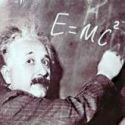 The Eskimos may (or may not) have many different words for snow, but according to a recent survey reported in The Daily Mail, the British may well have almost as many ways of referring to their remote controls – fifty of them, says the paper, from plain ol’ remote to oojamaflip and Trevor. You can check out the full list in The Daily Mail (link below) but as linguists, we thought we’d dig deeper into the origins of the names of this dinky device.
The Eskimos may (or may not) have many different words for snow, but according to a recent survey reported in The Daily Mail, the British may well have almost as many ways of referring to their remote controls – fifty of them, says the paper, from plain ol’ remote to oojamaflip and Trevor. You can check out the full list in The Daily Mail (link below) but as linguists, we thought we’d dig deeper into the origins of the names of this dinky device.
For short
Abbreviation is one of the most common ways languages make new words (just think of paper for newspaper, or text for text message). So not surprisingly, the most popular name for the remote control is the remote. But some people are more creative in their abbreviating, producing mote, infer (for infra-red, after the little red light) and troll(s) – which, of course, sounds like the unpleasant little Lord-of-the-Ring-type creatures who lurk under bridges and other dark places (such as behind cushions).
Er… you know
Another group of names are based on words Brits often use when they can’t remember a word. The most popular names of this type are the thing and the thingy, but we also find the more ornamental whatjamacallit, thingamajig (and its partner, the thingamajiggy) plus the exotic oojamaflip (all with j pronounced as in Jane, of course ), not to mention the rather mundane whatsit. The gizmo probably belongs here, too, although over the years it has become, like gadget, rather more respectable than its fellow members of this group.
Thing is, of course, a noun, but the basic verb do is also used to make names in the event of a memory black-out: examples of these are the do-dah, the dooberry, the do-for, the doo-fangle, the hoofer-doofer, the doo-flah, as well as the do-flicky, an embellishment of the flicky. In the pronunciation of all such do-words, incidentally, the stress falls on do.
Does the trick
This brings us to names based on what the device does, ranging from simple descriptions like the changer, the switcher, the controller, the converter and the tuner, to more informal ones, like the onner-offer (may take a moment’s thought). To change channels in English is, as in Dutch, to zap (which originally meant ‘to annihilate with a sudden high burst of energy’). From this we get the zapper, and its synonym, the blaster. The British also flip channels (like pages in a book) or hop from one to another – hence the names the flipper and the hopper. Older remotes click when you press the buttons, giving rise to the clicker.
Looks like
A few names relate to the appearance of the device: the buttons, the stick, the wand and the black box.
Ding-dong
English takes delight in forming sets of words that differ only in the main vowel. This is an extension of the idea we find in strong verbs (such as in sit/sat, dig/dug, ride/rode/ridden), which goes back to Indo-European times. Applying this vowel-changing technique, we get not only the clicker, but also the clacker, not to mention the flipper and the flapper, as well as the zipper, alongside the zapper. A particularly popular vowel pattern comes in combination with -ng, as in sing/sang/sung: we find it in the names the dingle, the dangle and the dongle, with echoes in the hum-dinger and the binky.
Move over, Trev
A few words for the remote control are quite mysterious – the melly (perhaps inspired by the telly, British slang for the TV), and the didge (possibly based on the Australian musical instrument, the didgeridoo, which, with a bit of imagination, looks like a large remote. Finally, according to The Daily Mail, some people admit to calling their remote control Trevor or Dave. Such people, the paper suggests, should perhaps try to get out a bit more!
Incidentally, the survey reported by The DailyMail last week does not seem to be that recent – The Guardian published something similar in June 2008. They both seem to be examples of ‘silly season’ journalism – stories that appear in the media during the summer months when there is not enough ‘real’ news to report. Oh well, it’s all good clean fun!
Link to article in The Daily Mail
Link to article in The Guardian
 Economical has a narrower meaning than economic. It means ‘not wasteful or extravagant; designed to save money (e.g., through efficiency)’:
Economical has a narrower meaning than economic. It means ‘not wasteful or extravagant; designed to save money (e.g., through efficiency)’:






 To many people’s surprise, in ‘normal’ (i.e., non-mathematical) English, the preposition used here is to, not of or for. So it’s the solution to a problem. Similarly, it’s the answer to a question or problem. However, when solution refers to the act of solving, then it can be followed by of:
To many people’s surprise, in ‘normal’ (i.e., non-mathematical) English, the preposition used here is to, not of or for. So it’s the solution to a problem. Similarly, it’s the answer to a question or problem. However, when solution refers to the act of solving, then it can be followed by of:
 In an interview article, it’s important that readers are never in any doubt as to who said what: is the interviewer (or narrator) speaking, or are these the words of the interviewee? And the problem naturally gets more complex if several people are being interviewed. One of the more subtle ways writers in English guide their readers through an interview is by using punctuation.
In an interview article, it’s important that readers are never in any doubt as to who said what: is the interviewer (or narrator) speaking, or are these the words of the interviewee? And the problem naturally gets more complex if several people are being interviewed. One of the more subtle ways writers in English guide their readers through an interview is by using punctuation. What courtesy title should you give a woman in English these days? It depends on whether she is married or not, the context (personal or business), her age and, to some extent, her nationality! Obviously, your best strategy is to use the title people give themselves. But what do you do if they don’t give themselves a title? For those occasions, use the handy table below.
What courtesy title should you give a woman in English these days? It depends on whether she is married or not, the context (personal or business), her age and, to some extent, her nationality! Obviously, your best strategy is to use the title people give themselves. But what do you do if they don’t give themselves a title? For those occasions, use the handy table below.
 The Eskimos may (or may not) have many different words for snow, but according to a recent survey reported in The Daily Mail, the British may well have almost as many ways of referring to their remote controls – fifty of them, says the paper, from plain ol’ remote to oojamaflip and Trevor. You can check out the full list in The Daily Mail (link below) but as linguists, we thought we’d dig deeper into the origins of the names of this dinky device.
The Eskimos may (or may not) have many different words for snow, but according to a recent survey reported in The Daily Mail, the British may well have almost as many ways of referring to their remote controls – fifty of them, says the paper, from plain ol’ remote to oojamaflip and Trevor. You can check out the full list in The Daily Mail (link below) but as linguists, we thought we’d dig deeper into the origins of the names of this dinky device. It’s a euro. The rule for using a or an is that we use a before a consonant and an before a vowel. But this rule is based on pronunciation, not spelling.
It’s a euro. The rule for using a or an is that we use a before a consonant and an before a vowel. But this rule is based on pronunciation, not spelling.



